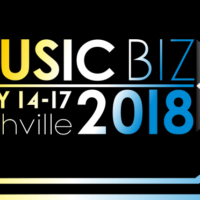Find a Music Manager, Part 4
This part four in a series of articles about finding music management. In Part Three, I was discussing the different types of managers. From my almost twenty years in music these are usually the four basic types I encounter. These are listed below the break. If you are interested in music marketing and management services please contact us to see if we are a good fit for you. If not- please read on.

1) Friends and acquaintances turned managers
2) Professional music executives
3) Momagers and Dadagers
4) Investor / Managers
Let’s go over the “friend turned manager” option first, as this is probably the most attainable type of manager. I have seen this scenario play out many times and can tell you that if you are not careful you can damage both your career and your friendships if this is done wrong, so be open and honest with your would be manager from day one.
This person should be …
- Responsible
- Trustworthy
- Free of drug, gambling and sex addictions (I wish this was a joke)
- Good at handling his or her own finances
- A natural networker who is great at meeting people and very like-able
- Willing and eager to learn more about being a good manager
- Someone who has a desire to make a living in music
Identifying your friend, the possible manager, isn’t always that difficult. It is about seeing them with unclouded eyes that can be the hard part. I suggest you go over the list above in your head with anyone you are considering. If it becomes obvious that your buddy who is supposed to help you load out after the show often disappears only to resurface days later asking to borrow money well, this is probably not your ideal manager.
Unless you are 100% sure that this person is the only person you want to manage you- I would suggest you have a conversation with the friend turned manager that you are going to do some kind of trial period to see how things work out with the professional relationship. In doing so, you set up reasonable expectations for both sides and you schedule a date (the end of the trial period) to go over your working relationship. Another reason to set this relationship up as a trial arrangement is that it is not uncommon for artists to outgrow management. You have probably seen it your travels as well: The guy or gal who was great at making sure all the gear was packed up and that the merch got sold started to be outclassed when questions like “What is market rate for this Sync license?” or “What kind of door deal do most acts of our size get?” started to arise.
Still, I am a believer in converting friends into managers if you are lucky enough to have hardworking friends who are eager to learn. People who are willing to do this kind of work for a fledgling artist for free are worth their weight in gold. There are many stories of very successful music managers who started out this exact way and, of course, there are plenty of stories about people like this who got blown out in favor of someone with more experience the minute things started heating up for the artist. I suggest you remember not to put 100% of your expectations on a manager of any kind to make things happen. Yes, a manager should be generating new business opportunities as well as managing your existing opportunities, but it is also up to you to continue these business efforts as well.
Along those lines, don’t just hire someone and say “You’re our manager now.” I see this all the time. If you are hiring someone and entrusting them to represent your artistic efforts when you are not around, you better have a very clear understanding of what you want from this person. (You should be much more specific in your goals than just “wanting to get to the next level.”)
The plan for your success has to start with you so instead of saying “we want to be big” or “we want to be successful”, you should have a road map of the next few months that you can communicate to them. This is important no matter what kind of manager you have, but especially with one who is rather new. If you are having trouble figuring out what you need to start with, here are a few of the standard developing artist hurdles:
- We want to play live more often and in other markets.
- We want to build our mailing list, social media profiles and YouTube subscribers
- We want to build our network of other artists for show trades and collaboration.
- We want to record more music of better quality with better people in the studio.
- We want to have more products and merch to sell to people.
- We want our bio and EPK to look professional and be regularly updated.
- We want to begin to establish relationships with music supervisors and booking agents.
To summarize – the friend turned manager is not a bad option provided you choose the right person.
I will detail the approach on more established managers in the next installment.














